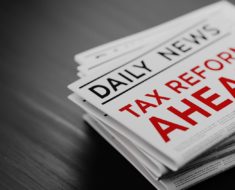Tax season is the perfect time to get a handle on your money. Whether you are living paycheck to paycheck, getting ready to send a child off to college, or planning for retirement, there are some painless techniques you can put into place to get you in the best possible financial situation. To begin, clear your desk off and pull up your bank statements, bills, and paycheck stubs.
Budget
The first thing you will need is to know how much money is coming in and how much is going out. To keep it simple, make a line down a sheet of paper and write down all your monthly expenses on one side and your take-home pay on the other. If the expenses are higher than the pay, it is time to look at cuts. Look through the list and see if there is anything you can cut out. Some things you might consider cutting are cable TV, dining out, and any monthly subscriptions. After weeding out what you do not need and you still fall short, it may be time to look into part-time or freelance work.
Debt
Loans and credit card payments may eat up most of your budget. If this is your situation, create a plan to reduce your debt. There are several ways you can attack it. One tactic is to take the loan you owe the least amount of money on and add extra money towards each monthly payment. To get the extra money, work with the budget you have just created. Putting a few extra dollars towards a payment will eventually eliminate it. Once one loan is paid off, take that entire monthly payment you have been paying and apply that to your next loan. On the second loan, you will continue to pay what you were originally paying, but now, you have added the entire amount of the first loan payment. The second loan will vanish even quicker.
Savings
Saving for vacations, children, or retirement can seem impossible if you are buried in bills and debt, but it can be done. Setting aside a little will turn into a lot because of compound interest. Take advantage of any retirement vehicles your employer offers you, and if you are self-employed, you can establish a 401(k), which has many tax benefits. To save funds for a rainy day or special event, set up an automatic savings account through your bank. Once a month, the bank will pull a set amount from your checking and put it into your savings account.
Dil Bole Oberoi





